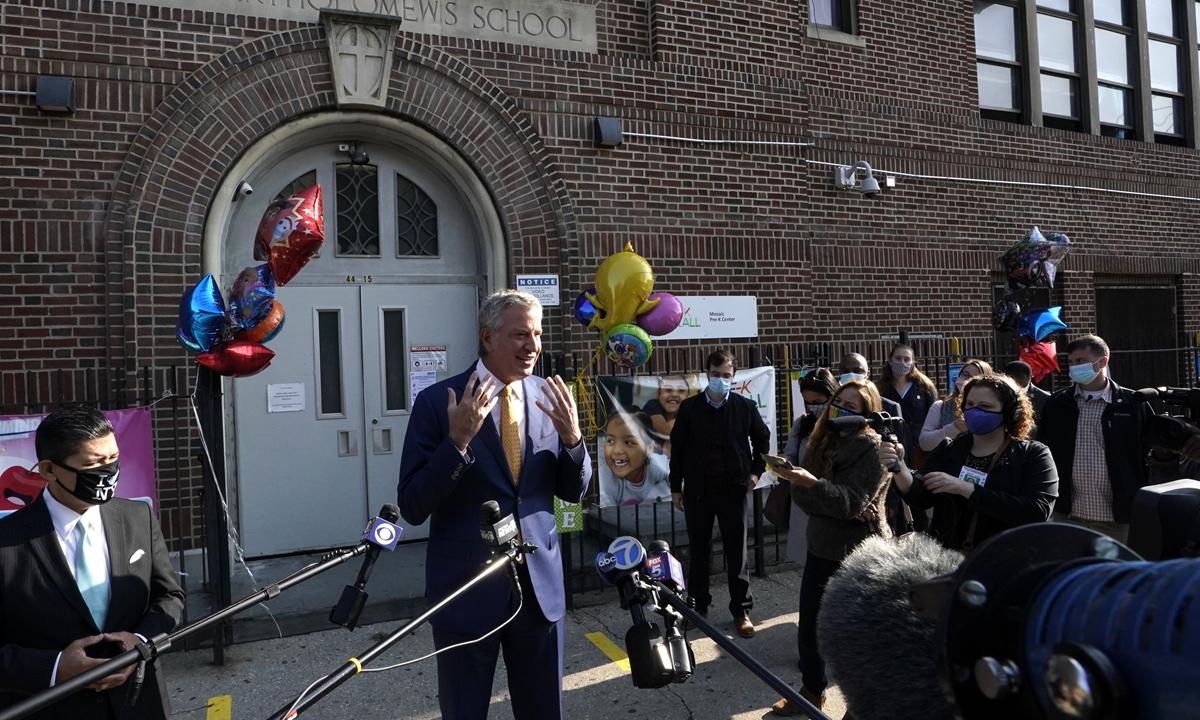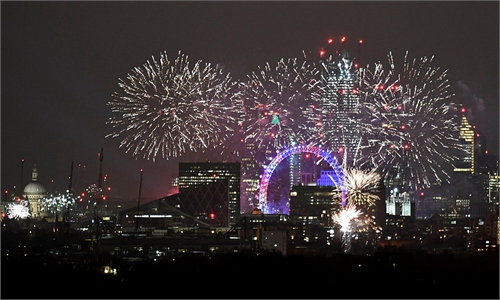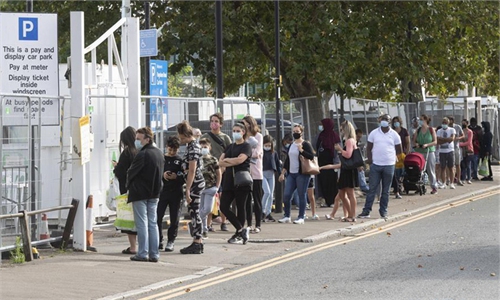
New York City Mayor Bill De Blasio talks to the press after he greets students arriving for the first day of Pre-K school at Mosaic Pre-K Center in the Queens borough of New York on Monday. New York City schools have been delayed amid concerns about preparedness during the coronavirus pandemic. Photo: AFP
The US registered 200,000 COVID-19 deaths on Monday, the latest grim milestone for the country just weeks before voters decide if President Donald Trump will stay in office.According to a rolling tally by Johns Hopkins University, 204,506 Americans have died and 7 million have been confirmed infected.
The US has had the world's highest official death toll for months, ahead of Brazil and India, with 137,350 and 88,965 deaths respectively.
Overall, the US accounts for 4 percent of the world's population and 20 percent of its coronavirus deaths, while its daily fatality rate relative to the overall population is four times greater than that of the EU.
Critics say the statistics expose the Trump administration's failure to meet its sternest test ahead of the November 3 election.
"Due to Donald Trump's lies and incompetence in the past six months, [we] have seen one of the gravest losses of American life in history," his Democratic rival Joe Biden charged on Monday.
"With this crisis, a real crisis, a crisis that required serious presidential leadership, he just wasn't up to it. He froze. He failed to act. He panicked. And America has paid the worst price of any nation in the world."
Trump insisted on "Fox and Friends" Monday that the US was "rounding the corner with or without a vaccine."
But the president has high hopes that the swift approval of a vaccine will boost his reelection chances.
"I would say that you'll have [a vaccine] long before the end of the year, maybe by the end of October," he told Fox.
Trump has set even more ambitious goals, stating that by April of 2021, most Americans who want to be immunized will have a vaccine.
Most experts argue that betting on vaccines is not a viable strategy.
Without adhering to masks, distancing and contact-tracing, and without ramping up testing, tens of thousands more could still die before life returns to normal in the US.
"What we need to do is shift... toward a more screening approach that's proactive to test asymptomatic individuals," Harvard surgeon and health policy researcher Thomas Tsai told AFP.
He said the government should approve rapid, at-home antigen tests, which it has been reluctant to do so far, and which would require the government to pay for it instead of insurance companies.
AFP



